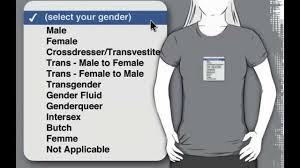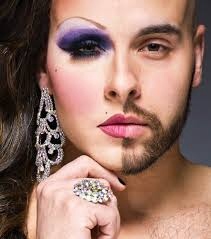review course
THE BIRDS AND THE BEES

by
DAVID SOLWAY
______________________________
David
Solway is a Canadian poet and essayist (Random Walks)
and author of The Big Lie: On Terror, Antisemitism, and
Identity and Hear, O Israel! (Mantua Books). His
editorials appear regularly in PJ
Media. His monograph, Global Warning: The Trials of
an Unsettled Science (Freedom Press Canada) was launched
at the National Archives in Ottawa in September, 2012. His debut
album, Blood
Guitar, is now available, as is his latest
book, Reflections
on Music, Poetry and Politics.
The
birds and the bees have got it right. There's a male, there's
a female, there's progeny. And the social organism thrives.
In our heavily (and increasingly) sexualized culture, this appears
to be less and less the case.
On
any reasonable scale of values, sex is merely one of many human
needs and preoccupations, fundamental but not exclusive. However,
instead of simply acknowledging the natural binary and getting
on with life, the focus is now on sex-related phenomena in any
 of
their multiple forms and aberrations: sexual politics, sexual
performance, sex education, sex scandals, same-sex marriage,
sexual coercion (the rape culture meme), and – perhaps
most notably – sex changes, cosmetic, chemical, and surgical.
To top it off, the male-female divide has been reconceived as
a "social construct" that must be unlearned, a relic
of the oppressive and unenlightened past.
of
their multiple forms and aberrations: sexual politics, sexual
performance, sex education, sex scandals, same-sex marriage,
sexual coercion (the rape culture meme), and – perhaps
most notably – sex changes, cosmetic, chemical, and surgical.
To top it off, the male-female divide has been reconceived as
a "social construct" that must be unlearned, a relic
of the oppressive and unenlightened past.
For
the gender radicals, biology itself is irrelevant. In its place,
they propose a metaphysics of gender, in which sexed identity
is a psychic essence known through an almost mystical apprehension
quite apart from the body and its chromosomes, morphology, and
hormonal structure. The latest fad – amounting to an epidemic
– that has come to afflict us is gender "self-identification"
and transgender fluidity, spewing forth a multiplicity of different
genders of choice (which can also change from day to day) and
spawning a blizzard of surrogate pronouns (zir, hir, elr, zis,
ze, etc.) that normal people are forced to recognize –
in some places, like the province of Ontario, by law, and also
as Bill C-16, now in its second reading in the Canadian Senate,
stipulates. In New York City, refusal to use gendered pronouns
can result in fines of up to $250,000. Transgender options and
their designators continue to proliferate. Thirty-one gender
pronouns – and counting – are like virgins in Islamic
heaven, the reward for an act of linguistic terrorism.
As
theologian Fay Voshell points out, a statement issued by the
National Center for Lesbian Rights (NCLR) serves to illustrate
the rigid zealotry we are now dealing with. "We believe
that every LGBT child is born perfect and that any young person's
identity as lesbian, gay, bisexual, or transgender should be
honored, celebrated, and supported," the organization declares
– thus elevating the presumed sexual orientation of a
minute segment of the underage population to the level of a
legitimate given, a reified perfection. The William Institute
estimates that only 0.3 percent of Americans self-confirm as
transgender, 1.8 percent as bisexual, and 1.7 percent as lesbian
or gay. The figures of the National Health Interview Survey
are in the same demographic range. This is hardly a burning
social question.
Note
as well that sexual orientation is, quite suddenly, no longer
a matter of choice, nor is it regarded as a "social construct."
It is now rooted in the genome. The hubris of the NCLR is rivaled
only by its state of cognitive dissonance and taxonomic extravagance.
Its members and the like-minded multitudes seem to care little
that there are no legal standards and no objective tests to
show that an individual suffers gender dysphoria requiring social
recognition or, in some cases, surgical intervention. Rather
shockingly, the latter determination depends simply on a diagnostician's
acceptance of a person's current feeling and subjective assessment.
As Walt Heyer, who spent years living as though he were a female
and then stopped, writes in Paper Genders, the only
place where sex change can be said to occur is on paper and
on driver's licenses and the like.
Similarly,
Paul McHugh, distinguished science professor of psychiatry at
Johns Hopkins University, the institution that pioneered the
idea of gender reassignment surgery (before suspending the practice),
has become a gender skeptic. Writing for The Witherspoon Institute,
he argues that the idea that "one's sex is fluid and a
matter of choice... is doing much damage to families, adolescents
and children and should be confronted as an opinion without
biological foundation." Transgendered people merely become
"counterfeiters or impersonators of the sex with which
they 'identify.'" The hypothesis, he continues, "that
gender identity is an innate, fixed property of human beings
that is independent of biological sex... is not supported by
scientific evidence." "Gender dysphoria," he
concludes in the article, titled "Transgenderism: A Pathological
Meme," "should be treated with psychotherapy."
The idea of physical sex change is a hormonal fraud, no less
than felt gender variance provoking multiple pronominal reference
is a personal and cultural disorder.
The
fact is, as any sane person knows, there are two genders and
only two genders. They are, admittedly, qualified by occasional
anomalies (e.g., the intersex condition in which a person is
born with both sets of genitalia) and by a range of personal
inclinations, impulses, and desires that stretch the boundaries
of normative practice and reject but do not refute the biological
imperative. This is an aspect of human freedom and marginal
desire, but it does not alter the reality that there are two
genders and only two genders. Personal inclinations do not alter
biology and should not be institutionalized, on peril of social
anarchy. Similarly, there are only two gender-specific pronouns:
he and she. Anyone who believes otherwise is living in a fantasy
world; is suffering from a state of traumatic confusion; is
a total stranger to elenchical thought; or is, I regret to say,
certifiable.
Moreover,
the preoccupation with gender identity obscures personal identity,
which is a much more complex and profound category. Personal
identity is a spiritual and psychological dimension encompassing
such modalities of being as one's relation to the Divine, one's
sense of historical existence, one's adherence to or struggle
with an ethical code of conduct, how one understands the mystery
of love, the way one confronts the tragic dilemma of mortality
– in brief, identity pertains to the essence, not the
accidents, of one's being. It involves what makes us imprescriptibly
human, as creatures with souls, irrespective of sex –
or, to cite an analogous issue, of skin color. Even if one could
actually change one's sex or skin color, the basic elements
that establish one's intrinsic identity remain in force. It
is not necessary to be Christian to appreciate Saint Paul's
apothegm in Galatians 3:28 that, Jew or Greek, slave or bond,
male or female, the soul is one.
Confusing
personal identity with gender identity allows for personal identity
to go undeveloped while supplanting it with what we might call
genital (or, analogously, epidermal) identity. The trade-off
is a mug's game, a profound reduction of the self, of the possibility
of achieving moral and intellectual substance. The vectors and
concomitants of desire or the socially reactive brackets and
classifications one negotiates have little to do with the core
phenomenon of true individual identity.
The
sexual obsessions of our time are rightly understood as forms
of prideful dementia, expressing the effort of human beings
to create what only God or Nature can create. It is the transgression
– with the emphasis on trans – that the Book of
Genesis warned against: "ye shall be as gods," as
the serpent insinuated, a temptation that led to the Fall, or
the building of the Tower of Babel, which generated a confusion
of languages, including thirty-one pronouns, no doubt.
The
signs of a culture on the skids are all around us, of which
gender mania and sex cathexis are both integral factors and
paramount examples. Thankfully, the birds and the bees have
retained their sanity, or seed dispersal would significantly
decrease, and the honey jar would soon be empty.